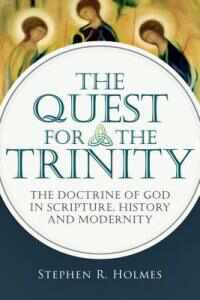Credo Magazine has dedicated their latest edition to the topic of the Trinity. Here's an excerpt from an interview with Stephen R. Holmes, author of the recent Quest for the Trinity.
You make the argument that the great pro-Nicean defenders of the Trinity, Basil of Casarea and Grego-ry of Nyssa, were more concerned about finding a “grammar” rather than a “logic” for the Trinity. Could you explain the difference and the difference it makes?
Sure. By “grammar” I mean a set of rules about how to speak properly—in the case of the doctrine of the Trinity, how to speak truthfully about God. By “logic” I mean a coherent argument that demonstrates that things must be so. What goes on in Basil, Gregory, and the rest, it seems to me, is an enormous, and astonishingly impressive, attempt to work out what things we must Scripture can be true. How can we say “I and the Father are one” and “the Father is great- er than I”—not choosing between them, but taking both claims with full seriousness as biblical revelation? At its root, the doctrine of the Trinity is an answer to that question.
This means it is, in a way, something quite modest. There is much that we do not know about God’s life - that’s hardly a surprise, but it is something we need to remember. The doctrine of the Trinity is not a full account of who God is that enables us to build set of rules about the sort of ways we must speak if our speech about God is to be faithful to the biblical revelation, and so true.[Bolding mine, weird formatting because of cut and paste job from a PDF.]
